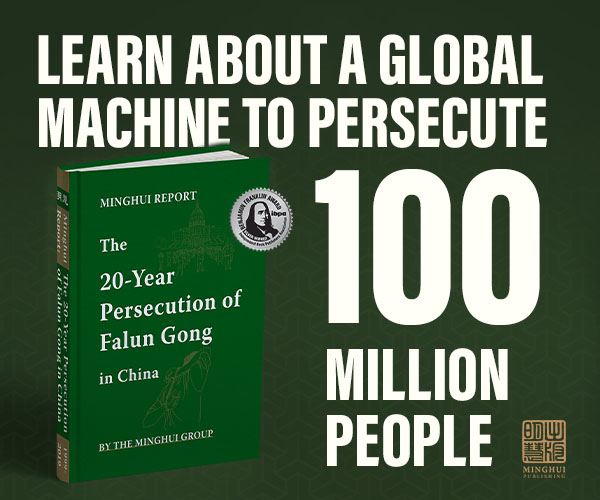(Minghui.org) As people around the world celebrated the New Year freely with no major concerns about COVID outbreaks, Chinese citizens are deeply mired in a tsunami of positive cases after the Chinese Communist Party (CCP) abruptly ended its zero-COVID policy with no warning or exit plan. From ordinary citizens to government officials, they struggle to fend for themselves as China’s healthcare system is under enormous strain and crematories are overwhelmed by the rising COVID deaths.
90-Year-Old Walks Two Hours to Buy Medicine
After getting infected with COVID, a 90-year-old man living by himself in the countryside of southwest China had to walk two hours to buy medicine, according to Radio Free Asia. Another elderly villager told the reporter, “Almost everyone is the village has been infected.”
Handan, a large city in Hebei Province that borders the provinces of Shanxi, Shandong, and Henan, also experienced a sharp rise in COVID cases. Most of the positive cases are among the elderly, but there are also some younger residents. Coffins were sold out and there were long lines outside local crematories. Some families in the countryside therefore chose to secretly bury the bodies of their loved ones at night.
One county in another province recently conducted a survey in the local schools. Close to 83% of the teachers and 79% of the students were infected. Most of them had severe symptoms: some had unbearable pain in their bones, some had high fever lasting for days, and some became very weak and lost over 10 pounds in just a few days. Looking back, many regret trusting the so-called CCP-approved experts who said the disease is as mild as the common cold. “You won’t know how miserable it is until you experience it,” one person said.
Deaths of CCP Officials and College Professors
A number of CCP officials died of COVID recently, including Lu Shujin (an official at the Wuhan Police Department in Hubei Province), Yang Cheng (Former Vice Chairman of the Chinese People's Political Consultative Conference in Chengdu City, Sichuan Province), Fang Li (former Deputy Director of Jinan People’s Congress in Shandong Province), and others.
Wang Huaijin, former Party Secretary of Xiqing District in Tianjin, died on December 25. As Chairman of the so-called Anti-Cult Association in Tianjin, Wang actively participated in the suppression of Falun Gong. Shi Hongxing, a judge at Tianxin District Court in Changsha City, Hunan Province, died at 37.
Several university professors have also died of the virus. Obituaries from Wuhan University of Technology in Hubei Province showed that the institution’s former Party Secretary Li Deyang died at 85 in Wuhan Union Hospital. According to information published on Minghui.org, Li was a long-time member of Hubei Anti-Cult Association and Hubei 610 Office, which showed his deep involvement in the persecution of Falun Gong.
Chen Hanmin, professor of fine arts at Tsinghua University, died on December 29. As a loyal CCP member, Chen participated in the design of paper currency, the symbol of Hong Kong’s return to China, and Mao Zedong’s crystal coffin. Qiu Guanyuan, professor of electrical engineering at Xi’an Jiaotong University in Shaanxi Province, also died on December 29.
Global Risks
Over 10 countries have put in place measures to mitigate the impact of the surging COVID cases in China. They are Australia, Canada, Spain, Malaysia, Japan, Italy, the United States, the United Kingdom, France, India, South Korea, North Korea, Taiwan, the Philippines, and Morocco.
Morocco announced on December 31 a ban on travelers from China beginning January 3. A foreign affairs ministry statement said that the restrictions would apply to all people arriving from China regardless of their nationality. The Philippines’ health ministry issued an extremely urgent notice that same day, saying that it will heighten monitoring of all respiratory symptoms in passengers arriving from China.
Etienne Decroly, virologist from the French National Center for Scientific Research, said although the coronavirus circulating in China is still the omicron variant, it remains unknown whether it has undergone mutation during the massive outbreak. In an interview with the news media La Dépeche, Decroly said it is likely that new variants could emerge during such a rapid, intense spreading.
Unanswered Questions
Because of the high number of severe cases, the medical system in Hebei Province is near collapse. This virus does not seem to be the omicron variant, but “rather, it is similar to what happened to Wuhan in the initial outbreak in 2020,” one doctor working on the front line said.
Dr. Chen, a surgeon at a top-tier hospital in Hebei Province, said the number of patients was too high. With limited resources, his hospital was on the verge of collapse. “The clinics and emergency departments in the hospital are all crowded like a farmers’ market,” he said. “Both doctors and nurses are nearly burnt out. Other than COVID patients, there are still scheduled operations. Some doctors have been running a fever for a long time and they have to perform surgeries.”
After meeting with Chinese officials, the World Health Organization (WHO) issued a statement on December 30. “WHO again asked for regular sharing of specific and real-time data on the epidemiological situation — including more genetic sequencing data, data on disease impact including hospitalisations, intensive care unit (ICU) admissions and deaths — and data on vaccinations delivered and vaccination status, especially in vulnerable people and those over 60 years old,” read the statement.
All content published on this website are copyrighted by Minghui.org. Minghui will produce compilations of its online content regularly and on special occasions.
Category: News & Events










